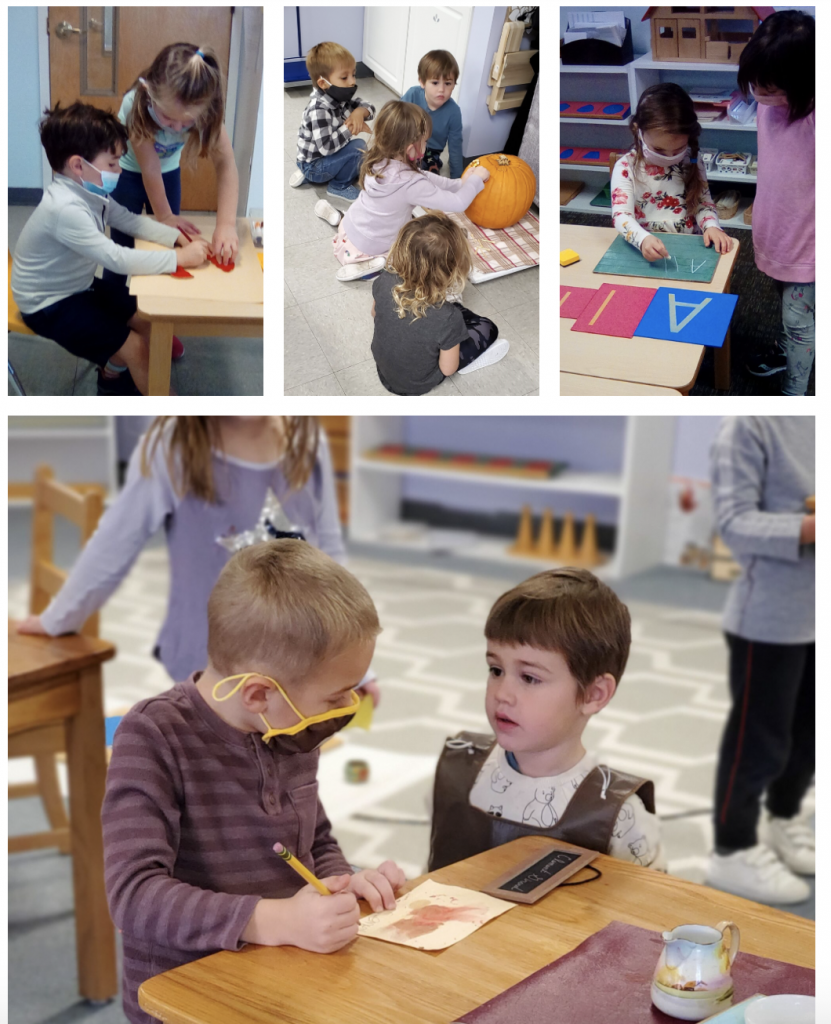The human hand, so delicate and so complicated, not only allows the mind to reveal itself but it enables the whole being to enter into special relationships with its environment. –Maria Montessori
I am often asked, “Why Montessori for the kindergarten year?” You may be familiar with my answer: You chose Westshore Montessori School for your child’s preschool because you wanted to give him/her the best. You wanted him/her to experience learning in a respectful, loving, home-like environment. You wanted him/her to be appreciated and valued for the individual they are. You wanted him/her to not only learn academics but to learn how they learn.
The Montessori learning experience is cumulative: what your child has learned in the first two years will impact what they learn in their kindergarten year. In the Montessori environment, there is a great emphasis on the transition from concrete into abstraction, from physical materials into ideas. Kindergarten is the time when that transition needs to take place. Your children will learn to read, do mathematical operations, and begin to think about the world in terms of interrelated facts. It is a social time as well, when children are starting to interact with each other in work and play, and to pay attention to the thoughts and feelings of others.

The leadership skills the children learn in their kindergarten year at a Montessori school far surpass what they would learn and experience at a traditional kindergarten. The third-year students are viewed as leaders by the younger children. By working with younger children at lessons and during social time, the older children’s leadership skills are heightened—a foundational experience that develops lifelong leadership skills.
Montessori students will often develop academic skills far beyond those of children enrolled in most American kindergarten programs. However, you should know that academic progress is not our ultimate goal. Our real hope is that the children will have an incredible sense of self-confidence and enthusiasm for learning. We want much more than competency in the basic skills; we want them to honestly enjoy school, be motivated to learn and explore, and feel good about themselves as students.
The leadership skills the children learn in their kindergarten year at a Montessori school far surpass what they would learn and experience at a traditional kindergarten. The third-year students are viewed as leaders by the younger children. By working with younger children at lessons and during social time, the older children’s leadership skills are heightened—a foundational experience that develops lifelong leadership skills.
Montessori students will often develop academic skills far beyond those of children enrolled in most American kindergarten programs. However, you should know that academic progress is not our ultimate goal. Our real hope is that the children will have an incredible sense of self-confidence and enthusiasm for learning. We want much more than competency in the basic skills; we want them to honestly enjoy school, be motivated to learn and explore, and feel good about themselves as students.
Once children have developed a high degree of self-confidence, independence, and enthusiasm for the learning process, they can adapt to all sorts of new situations. They begin their elementary years with a vibrant curiosity and excitement about making new friends and learning new things.
Once children have developed a high degree of self-confidence, independence, and enthusiasm for the learning process, they can adapt to all sorts of new situations. They begin their elementary years with a vibrant curiosity and excitement about making new friends and learning new things.
